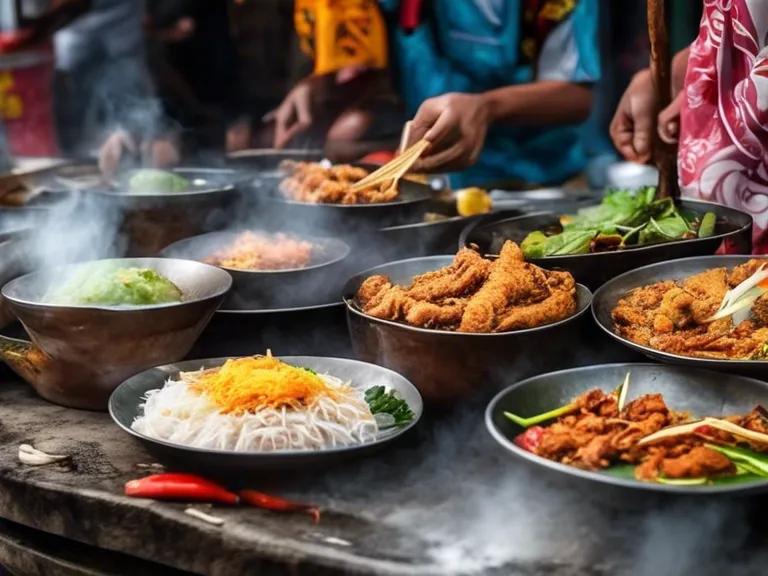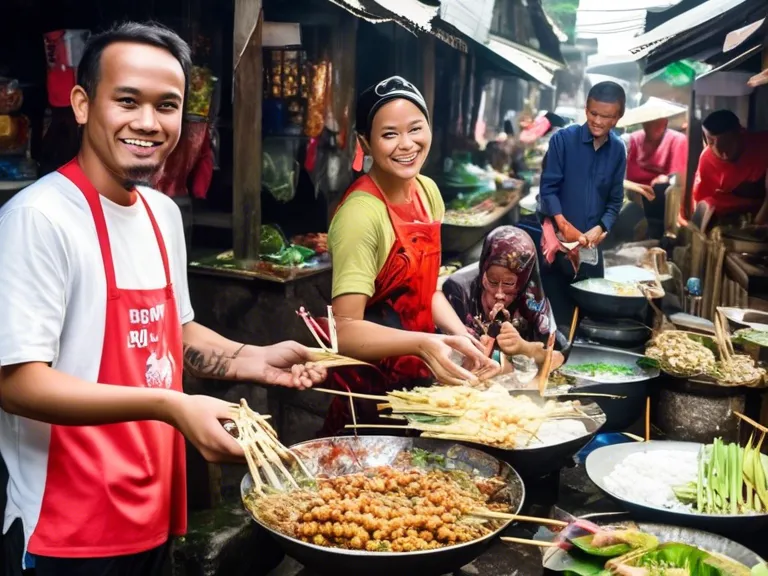
Street food in Indonesia has a long history and a rich variety that reflects the country's diverse cultures and culinary traditions. From simple snacks to flavorful meals, Indonesian street food has evolved over time, from traditional dishes to modern fusion creations. Let's take a closer look at the history and evolution of Indonesian street food.
Street food has always been an integral part of Indonesian culture. It provides a convenient and affordable way for people to enjoy delicious and authentic dishes. Indonesian street food can be traced back to the early days of trade and migration, when various ethnic groups brought their culinary influences to the archipelago. This resulted in a melting pot of flavors and ingredients that are still present in Indonesian street food today.
Some of the most popular Indonesian street food dishes include nasi goreng (fried rice), sate (skewered and grilled meat), bakso (meatball soup), and martabak (stuffed pancake). These dishes have become iconic symbols of Indonesian cuisine and can be found in street stalls, food carts, and markets across the country.
In recent years, Indonesian street food has undergone a culinary revival, with chefs and entrepreneurs putting a modern twist on traditional dishes. Fusion creations like Indonesian-style burgers, tacos, and sushi have become popular among younger generations and tourists looking for a unique dining experience.
The evolution of Indonesian street food has also been influenced by changing consumer preferences and lifestyles. With the rise of urbanization and globalization, street food vendors have adapted their menus to cater to a more cosmopolitan and health-conscious audience. Organic, vegan, and gluten-free options are now available alongside the classic street food favorites.
Despite these changes, Indonesian street food remains a beloved and essential part of the country's culinary landscape. Whether you're craving a quick snack or a satisfying meal, Indonesian street food offers a taste of authentic flavors and a glimpse into the country's vibrant food culture.



